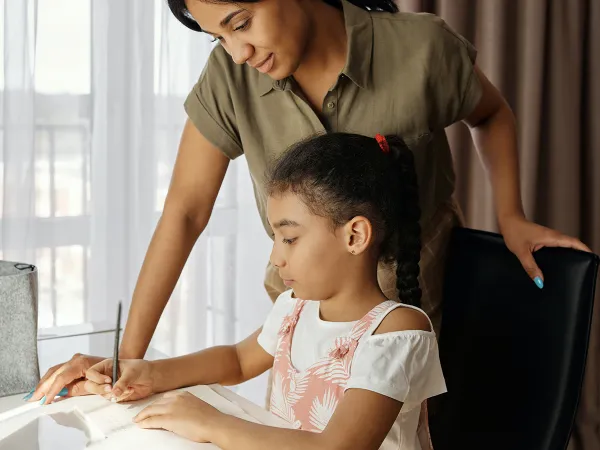No doubt, phonics plays a crucial role in developing a child’s reading and language skills. As parents, supporting phonics learning at home can significantly enhance your child’s literacy abilities. Incorporating simple yet effective tips and tricks into your daily routine can create a supportive environment fostering phonics development. In this blog post, we will explore various ways parents can assist their children with phonics learning at home, empowering them to become confident readers and communicators.
Key Takeaways:
- Consistent Practice: Regular practice with phonics activities at home can significantly improve a child’s reading skills.
- Use Multi-Sensory Techniques: Engage children in various activities that involve hearing, seeing, and moving to help reinforce phonics concepts.
- Provide Positive Reinforcement: Celebrate small victories and progress to boost your child’s confidence and motivation in phonics learning.
- Read Aloud Together: Reading to your child and with your child can demonstrate phonics skills in context and encourage a love for reading.
- Use Technology Wisely: Incorporate educational apps, online games, and digital resources focusing on phonics to make learning engaging and interactive.
Understanding Phonics
What Are Phonics and Why Are They Essential
Phonics is a method of teaching reading and writing by developing learners’ phonemic awareness – the ability to hear, identify, and manipulate phonemes (individual sounds) in words. It involves connecting the sounds of spoken English with particular letters or groups of letters. Phonics is essential because it provides the foundational skills for children to become fluent readers and proficient spellers.
By understanding phonics, children can decode new words by sounding them out and blending the individual sounds. This ability is crucial for independent reading and helps children develop strong literacy skills. Without a solid foundation in phonics, children may struggle with reading and writing, affecting their overall academic performance.
Key Phonics Terms and Concepts
Understanding key phonics terms and concepts is crucial for parents to support their child’s phonics learning at home effectively. Concepts such as phonemes (individual sounds), graphemes (written representations of sounds), blending (combining sounds with reading words), and segmenting (breaking words into individual sounds for spelling) form the basis of phonics instruction.
Knowing these key terms will help parents create engaging activities, games, and exercises to reinforce phonics skills and enhance their child’s literacy development. By incorporating these concepts into daily practice, parents can play a vital role in helping their child become a confident and booming reader and writer.
Strategies for Phonics Support at Home
Creating a Literacy-Rich Environment
The home environment plays a crucial role in supporting phonics learning for children. Parents can immerse their children in a world where reading and writing are valued and encouraged by creating a literacy-rich environment. This can include having a variety of age-appropriate books easily accessible, displaying letters and words around the house, and engaging in activities that involve reading and writing.
Furthermore, parents can model good reading habits by reading aloud to their children, showing enthusiasm for stories, and discussing the plot, characters, and themes. By making literacy a natural and enjoyable part of everyday life, parents can help their children develop a strong foundation in phonics and reading skills.
Engaging in Phonics Activities and Games
Creating engaging phonics activities and games can make learning fun and interactive for children. Activities like word hunts, rhyming games, and letter-sound matching can help reinforce phonics concepts enjoyably. Additionally, phonics-based apps and online resources can provide children with additional practice and reinforcement outside school.
Phonics games can also be incorporated into everyday routines, such as turning a trip to the grocery store into a game of finding items that start with a specific letter sound. By infusing phonics practice into daily activities, parents can help their children strengthen their phonics skills while having fun.
Tips for Effective Phonics Practice
Not all phonics practice is created equal. To make the most of your child’s learning experience, consider these tips:
- Provide various reading materials such as books, flashcards, and educational websites.
- Engage in interactive phonics games or activities to keep learning fun and exciting.
- Encourage your child to sound out words and practice phonetic rules consistently.
- Offer praise and positive reinforcement to boost your child’s confidence and motivation.
- Consistency is critical – make phonics practice a regular part of your child’s routine.
Recognizing the importance of effective phonics practice can help propel your child’s reading skills to the next level.
Incorporating Phonics into Daily Routines
Find opportunities to incorporate phonics practice naturally into your child’s daily routine. Integrating phonics into daily activities makes learning seamless and engaging, whether it’s reading labels while cooking together, identifying sounds while on a nature walk, or playing word games during car rides.
By associating phonics with everyday tasks, your child will begin to see reading and decoding words as a fun and integral part of their day.
Overcoming Common Challenges in Phonics Learning
Phonics learning can sometimes present challenges, but these obstacles can be overcome with the right approach. By recognizing your child’s strengths and weaknesses, you can tailor phonics practice to meet their specific needs and learning styles.
When faced with difficulties, offer support, patience, and encouragement to help your child navigate any hurdles in their phonics learning journey.
The key to overcoming common challenges in phonics learning is to provide a supportive and nurturing environment where your child feels safe to make mistakes and learn from them. Creating a positive and encouraging atmosphere can help your child build confidence and improve their phonics skills over time.
Resources and Tools
Unlike other subjects, phonics learning requires specific tools and resources to support a child’s learning journey effectively. Parents can create a conducive environment for their children to excel in phonics by incorporating the right resources and tools at home.
Recommended Phonics Learning Programs and Apps
Phonics learning programs and apps can be valuable resources for parents looking to support their child’s phonics learning at home. These digital tools often provide interactive and engaging activities that cater to different learning styles. Programs like ABC Mouse, Reading Eggs, and Starfall are popular choices that offer structured lessons and fun games to reinforce phonics skills. By incorporating these programs into your child’s daily routine, you can enhance their phonics knowledge enjoyably.
Equipping your child access to phonics apps on tablets or computers can supplement their learning outside school hours. These apps often provide immediate feedback and progress tracking, allowing parents to monitor their child’s advancement in phonics. Parents can empower children to become confident readers and spellers with the right phonics learning programs and apps.
Books and Materials for Reinforcing Phonics Skills
Any collection of children’s books can become a valuable resource for reinforcing phonics skills at home. Look for books designed explicitly for phonics practice, often using repetition, rhyme, and decodable text to reinforce phonetic patterns. Popular series like Bob Books, Phonics Readers, and Usborne Very First Reading offer a systematic approach to phonics that can complement the learning happening in the classroom.
With various phonics-based materials, you can create engaging reading sessions with your child to practice phonics skills. Incorporate activities like word hunts, word-building games, or reading challenges using phonics-based books to make learning interactive and enjoyable. Integrating these books and materials into your daily routine can provide consistent support in developing your child’s phonics proficiency.
Summing up
So, by incorporating these simple yet effective tips and tricks, parents can actively support their child’s phonics learning journey at home. By creating a literacy-rich environment, encouraging regular practice, providing engaging resources, and celebrating progress, parents can play a crucial role in helping their children develop strong phonics skills. Parents can pave the way for their child to become a confident reader and communicator with consistent support and guidance. Recall that phonics learning is a foundational skill that can unlock a world of opportunities for your child, so make the most of these strategies to ensure their success in reading and beyond.
FAQ
Q: Why is phonics important for children’s learning?
A: Phonics is essential because it helps children develop strong reading and spelling skills by teaching them the sounds that make up words.
Q: How can parents support phonics learning at home?
A: Parents can support phonics learning at home by practising phonics activities with their children, reading together, and providing a print-rich environment.
Q: What are some tips for making phonics learning fun for children?
A: To make phonics learning fun, parents can use games, songs, and hands-on activities to engage children in learning letter sounds and blending words.
Q: How often should parents practice phonics with their children at home?
A: It is recommended that parents practice phonics with their children for at least 15-20 minutes each day to reinforce learning and build phonics skills.
Q: Are there any resources or tools parents can use to support phonics learning at home?
A: Yes, parents can use online phonics games, workbooks, flashcards, and phonics-based reading apps to supplement phonics learning at home and make it more interactive for children.











